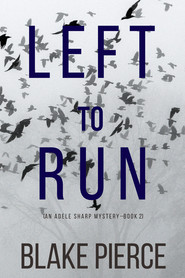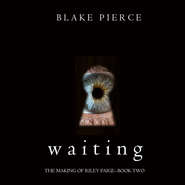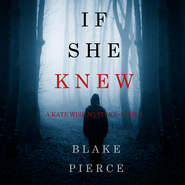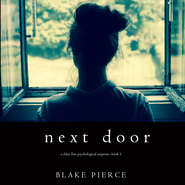По всем вопросам обращайтесь на: info@litportal.ru
(©) 2003-2024.
✖
Left To Die
Настройки чтения
Размер шрифта
Высота строк
Поля
Steadying her breathing once more, Adele flicked through the files on her download folder. Finally, wedged up against the window, blocking anyone behind her from seeing the pictures or content of the report, she clicked the newest file uploaded by Sam.
She studied the pictures with cold, clinical calculations, refusing to miss anything. She cataloged as much of the information as she could, her eyes flicking from frame to frame, reading the doctor’s notes beneath each image.
A young woman—shirtless, shoeless. The killer thought he was being clever. But the missing shoes weren’t a fetish. He’d injected her between the toes; Adele would have put money on it.
She skimmed to an image of the scene—beneath a dark, dank bridge. Lonely, out of sight. Adele’s gaze flitted back to the image of the girl. Not a streetwalker, nor a girl from a low-rent part of town. A nice girl—a city girl. How had the killer lured her beneath the bridge?
Did she know him?
Adele shook her head, her hair rubbing against the headrest of the airplane seat. Unlikely. The killer wouldn’t have risked traveling halfway around the world to kill someone he knew.
Could the killer speak French? Maybe he’d lured her. Bundy used to pull a trick, pretending to be a cripple, or pretending to look for a lost pet. Preying on the compassion of his victims.
Perhaps the Benjamin Killer was doing the same?
The bridge underpass was dark in the pictures of the crime scene, and two rows of cement dividers shielded Marion’s corpse from view. Planned then, rehearsed. The killer knew where he was taking her.
Just like with Jeremy. Like with Agatha. The murderer plotted his kills well in advance, choosing the perfect location, like a lover preparing for a first date.
Adele stared at Marion’s crumpled body. She could see how he’d shoved her, and then he would have threatened her with a gun? No—she doubted it. Not in France. Though it was still a possibility.
A knife would be enough. Maybe even the murder weapon. Then he would remove her shoes and prick her with the needle.
The lighting was too poor to tell much beyond that. Perhaps this was a mercy.
The killer’s handiwork was visible across the Parisian’s half naked corpse.
Adele thought she could see the young woman’s eyes strained in their sockets, conveying a cry for help. Her pupils dilated, though she would have been unable to move. Adele gritted her teeth yet again; she could only imagine the fear, the pain, the sheer sense of loneliness and helplessness.
Adele flipped through the notes and pictures a second time, refused to skip any of it. Any scene, any moment, any fragment of an instance could hold a clue.
She shook her head, sighing softly. Then she read the report again. Nothing new, simply detailing what it was she’d already seen. Adele read the report once more, and then another time, and another. Each time her eyes perused the words on the screen, reading the horrific crime described in clinical detail, she scanned it for clues, keeping her eyes open, her mind attentive, cataloging every second, every pixel, every discarded cigarette butt and graffiti tag beneath the bridge.
She refused to let him get away. Marion Lucas’s pleading, motionless eyes demanded justice. The blood pooling around the young girl cried out for vengeance. And Adele, more than ever, was determined to provide it.
CHAPTER SIX
The Charles De Gaulle international airport was one of the largest ones in Europe. Her shoes tapped against the tiles, and then paused on the whirring escalator. She passed through customs and reached the gate.
Adele scanned the waiting room, her eyes flicking from happy families embracing some new arrival, or chauffeurs in dark hats and glasses holding up small signs, to other travelers who set off alone, their luggage trundling behind them.
Her own briefcase rested on top of her suitcase handle, which she’d extended and held tight, rolling her suitcase along behind her.
“Adele Sharp,” said a soft, polite voice. Surprisingly, a voice she recognized.
For a moment, if only that, the thoughts of the case were chased from her mind. The way the person pronounced her name, the words plucked from the air, like a florist cutting flowers and presenting them to a customer, brought back memories.
She looked in the direction of the voice and a smile stretched her face.
“Robert?” she said, her cheeks bunching. “Of course they would send you. Of course!”
Robert Henry stood straight-backed and stiff. He wore an immaculately pressed suit, and had a curved, perfectly manicured mustache on his upper lip. His hair was thicker than she remembered it back in their days working at the DGSI—hair plugs, perhaps? Robert had been the one who’d taken her under his wing. He’d saved her life on at least two separate occasions.
A flood of memories came with this recognition. He was smiling back at her, his hands loosely at his side, his polished shoes heel to heel.
Robert Henry was about three inches shorter than she was. Adele was tall, but not excessively so. Robert had once played soccer for a semi-professional team in Italy, but had returned to France when he’d been recruited in the 1950s by the French government, long before DGSI existed. Now, like his hair, his mustache was also dyed black.
“Robert!” she called, hurrying across the floor, her shoes squeaking against the polished ground. “It’s good to see you, old friend.”
The small man smiled up at her, extending a hand with a sort of gallant flourish. He took her arm and declared, “You are as beautiful as my sore old eyes remember. I feel the youth returning to my bones as we speak.”
Robert didn’t even have a hint of an accent. Adele had it on good authority he could speak eight different languages with perfect inflection. As far as investigators went, he was one of the best France had to offer.
“Off to your flattering ways already, I see? And me only fresh off the plane.”
“And fresh is the perfect word. Refreshing to have someone who appreciates the importance of sparsity.”
His eyes darted to her small suitcase.
“I’ll just buy anything else I need. FBI’s paying.”
“Of course, of course. And how are our American friends?”
“I can’t complain. You didn’t drive yourself, did you?” Adele grimaced and made a big show of shaking her head.
“Ah,” said Robert, a slight frown increasing his otherwise impassive expression. “If you’re recollecting that time in Bulgaria, the countryside, I’ll have you know, automatic cars are a bane, non, a curse on the modern world!”
Adele hid a smirk and wheeled her suitcase around so she could rest an elbow on the raised handle. “Yeah, that’s why you hit the light post, is it?”
He scowled in mock severity, clicking his tongue. As he drew nearer, he smelled of a bit too much cologne and a light odor of cigar smoke. “Back to where we left it, I see? No respect. And is it just me, or has your beautiful, glorious accent faded, hmm?”
Adele paused at the smell and the comment about her accent. Her mind wandered for a moment, back to her first days at the DGSI, walking into Robert’s office. The same smell had confronted her, as had the same small, friendly man, with far more gray hairs at the time. She could still remember the neat, tidy office, displaying pictures of racetracks and old sports cars. Robert had no frames displaying family photos, as he had no family.
And yet, Adele’s lips curved slightly as she remembered the way the man had greeted her then. A strange young girl from America, wandering into his office. He’d welcomed her like a niece and immediately had started asking far too personal questions about her health, her love life, her favorite foods.
It had felt like home.
Adele never had a home. She wasn’t German enough, French enough, American enough for anyone to claim her as one of theirs unless they wanted something from her. She spoke with the slightest of accent in every language, unable to fully call one hers.
Twelve years in Germany, another fifteen years in France, then the rest in the US. Angus had teased her about traveling so much and never settling. But it never felt right settling anywhere, because… though she hated to admit it, Adele didn’t belong anywhere. A girl without a home, and no real family left to speak of—moving so much had familial consequences too.
At the time, on her first day, Robert had seen right through her loneliness. He’d seen her as a kindred spirit and adopted her on the spot.
The small, well-dressed, even-toned man kept Adele by the arm, holding it in the crook of his, and began to lead her back toward the exit. They approached the sliding glass doors and slipped into the stream of passengers leaving the airport. Adele allowed her old mentor to guide her along the streets across the gate lane, to where a parked car awaited them—a Renault sedan with dark, tinted windows framed by black paneling. Adele gave her suitcase to Robert, who hefted it into the trunk.
She moved toward the passenger’s door, but he quickly beat her to it and opened it, ushering her into the front seat with a gallant wave of his hand.
“Thank you,” she said, hiding a smile.
She studied the pictures with cold, clinical calculations, refusing to miss anything. She cataloged as much of the information as she could, her eyes flicking from frame to frame, reading the doctor’s notes beneath each image.
A young woman—shirtless, shoeless. The killer thought he was being clever. But the missing shoes weren’t a fetish. He’d injected her between the toes; Adele would have put money on it.
She skimmed to an image of the scene—beneath a dark, dank bridge. Lonely, out of sight. Adele’s gaze flitted back to the image of the girl. Not a streetwalker, nor a girl from a low-rent part of town. A nice girl—a city girl. How had the killer lured her beneath the bridge?
Did she know him?
Adele shook her head, her hair rubbing against the headrest of the airplane seat. Unlikely. The killer wouldn’t have risked traveling halfway around the world to kill someone he knew.
Could the killer speak French? Maybe he’d lured her. Bundy used to pull a trick, pretending to be a cripple, or pretending to look for a lost pet. Preying on the compassion of his victims.
Perhaps the Benjamin Killer was doing the same?
The bridge underpass was dark in the pictures of the crime scene, and two rows of cement dividers shielded Marion’s corpse from view. Planned then, rehearsed. The killer knew where he was taking her.
Just like with Jeremy. Like with Agatha. The murderer plotted his kills well in advance, choosing the perfect location, like a lover preparing for a first date.
Adele stared at Marion’s crumpled body. She could see how he’d shoved her, and then he would have threatened her with a gun? No—she doubted it. Not in France. Though it was still a possibility.
A knife would be enough. Maybe even the murder weapon. Then he would remove her shoes and prick her with the needle.
The lighting was too poor to tell much beyond that. Perhaps this was a mercy.
The killer’s handiwork was visible across the Parisian’s half naked corpse.
Adele thought she could see the young woman’s eyes strained in their sockets, conveying a cry for help. Her pupils dilated, though she would have been unable to move. Adele gritted her teeth yet again; she could only imagine the fear, the pain, the sheer sense of loneliness and helplessness.
Adele flipped through the notes and pictures a second time, refused to skip any of it. Any scene, any moment, any fragment of an instance could hold a clue.
She shook her head, sighing softly. Then she read the report again. Nothing new, simply detailing what it was she’d already seen. Adele read the report once more, and then another time, and another. Each time her eyes perused the words on the screen, reading the horrific crime described in clinical detail, she scanned it for clues, keeping her eyes open, her mind attentive, cataloging every second, every pixel, every discarded cigarette butt and graffiti tag beneath the bridge.
She refused to let him get away. Marion Lucas’s pleading, motionless eyes demanded justice. The blood pooling around the young girl cried out for vengeance. And Adele, more than ever, was determined to provide it.
CHAPTER SIX
The Charles De Gaulle international airport was one of the largest ones in Europe. Her shoes tapped against the tiles, and then paused on the whirring escalator. She passed through customs and reached the gate.
Adele scanned the waiting room, her eyes flicking from happy families embracing some new arrival, or chauffeurs in dark hats and glasses holding up small signs, to other travelers who set off alone, their luggage trundling behind them.
Her own briefcase rested on top of her suitcase handle, which she’d extended and held tight, rolling her suitcase along behind her.
“Adele Sharp,” said a soft, polite voice. Surprisingly, a voice she recognized.
For a moment, if only that, the thoughts of the case were chased from her mind. The way the person pronounced her name, the words plucked from the air, like a florist cutting flowers and presenting them to a customer, brought back memories.
She looked in the direction of the voice and a smile stretched her face.
“Robert?” she said, her cheeks bunching. “Of course they would send you. Of course!”
Robert Henry stood straight-backed and stiff. He wore an immaculately pressed suit, and had a curved, perfectly manicured mustache on his upper lip. His hair was thicker than she remembered it back in their days working at the DGSI—hair plugs, perhaps? Robert had been the one who’d taken her under his wing. He’d saved her life on at least two separate occasions.
A flood of memories came with this recognition. He was smiling back at her, his hands loosely at his side, his polished shoes heel to heel.
Robert Henry was about three inches shorter than she was. Adele was tall, but not excessively so. Robert had once played soccer for a semi-professional team in Italy, but had returned to France when he’d been recruited in the 1950s by the French government, long before DGSI existed. Now, like his hair, his mustache was also dyed black.
“Robert!” she called, hurrying across the floor, her shoes squeaking against the polished ground. “It’s good to see you, old friend.”
The small man smiled up at her, extending a hand with a sort of gallant flourish. He took her arm and declared, “You are as beautiful as my sore old eyes remember. I feel the youth returning to my bones as we speak.”
Robert didn’t even have a hint of an accent. Adele had it on good authority he could speak eight different languages with perfect inflection. As far as investigators went, he was one of the best France had to offer.
“Off to your flattering ways already, I see? And me only fresh off the plane.”
“And fresh is the perfect word. Refreshing to have someone who appreciates the importance of sparsity.”
His eyes darted to her small suitcase.
“I’ll just buy anything else I need. FBI’s paying.”
“Of course, of course. And how are our American friends?”
“I can’t complain. You didn’t drive yourself, did you?” Adele grimaced and made a big show of shaking her head.
“Ah,” said Robert, a slight frown increasing his otherwise impassive expression. “If you’re recollecting that time in Bulgaria, the countryside, I’ll have you know, automatic cars are a bane, non, a curse on the modern world!”
Adele hid a smirk and wheeled her suitcase around so she could rest an elbow on the raised handle. “Yeah, that’s why you hit the light post, is it?”
He scowled in mock severity, clicking his tongue. As he drew nearer, he smelled of a bit too much cologne and a light odor of cigar smoke. “Back to where we left it, I see? No respect. And is it just me, or has your beautiful, glorious accent faded, hmm?”
Adele paused at the smell and the comment about her accent. Her mind wandered for a moment, back to her first days at the DGSI, walking into Robert’s office. The same smell had confronted her, as had the same small, friendly man, with far more gray hairs at the time. She could still remember the neat, tidy office, displaying pictures of racetracks and old sports cars. Robert had no frames displaying family photos, as he had no family.
And yet, Adele’s lips curved slightly as she remembered the way the man had greeted her then. A strange young girl from America, wandering into his office. He’d welcomed her like a niece and immediately had started asking far too personal questions about her health, her love life, her favorite foods.
It had felt like home.
Adele never had a home. She wasn’t German enough, French enough, American enough for anyone to claim her as one of theirs unless they wanted something from her. She spoke with the slightest of accent in every language, unable to fully call one hers.
Twelve years in Germany, another fifteen years in France, then the rest in the US. Angus had teased her about traveling so much and never settling. But it never felt right settling anywhere, because… though she hated to admit it, Adele didn’t belong anywhere. A girl without a home, and no real family left to speak of—moving so much had familial consequences too.
At the time, on her first day, Robert had seen right through her loneliness. He’d seen her as a kindred spirit and adopted her on the spot.
The small, well-dressed, even-toned man kept Adele by the arm, holding it in the crook of his, and began to lead her back toward the exit. They approached the sliding glass doors and slipped into the stream of passengers leaving the airport. Adele allowed her old mentor to guide her along the streets across the gate lane, to where a parked car awaited them—a Renault sedan with dark, tinted windows framed by black paneling. Adele gave her suitcase to Robert, who hefted it into the trunk.
She moved toward the passenger’s door, but he quickly beat her to it and opened it, ushering her into the front seat with a gallant wave of his hand.
“Thank you,” she said, hiding a smile.

















